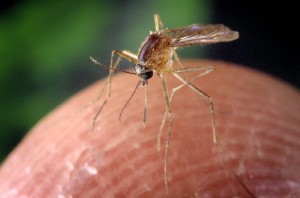Duval County, in northeast Florida, has already seen one human infection transmitted by the Culex mosquito this year when a resident contracted West Nile virus. Yesterday, Duval County health officials reported a relatively rare human case of St. Louis encephalitis (SLE) in a Jacksonville woman, the first such case in over a decade in the state of Florida.

Image/CDC
The 58-year-old woman contracted the mosquito-borne flavivirus back in August; however, it took about two months to confirm the viral disease. It is not clear where she was bitten, but officials believe it was local transmission.
This has prompted the health department to issue a mosquito-borne illness alert.
Saint Louis encephalitis virus (SLEV) is transmitted to humans by the bite of an infected mosquito. Most cases of SLEV disease have occurred in eastern and central states. Most persons infected with SLEV have no apparent illness. Initial symptoms of those who become ill include fever, headache, nausea, vomiting, and tiredness.
Severe neuroinvasive disease (often involving encephalitis, an inflammation of the brain) occurs more commonly in older adults. In rare cases, long-term disability or death can result. There is no specific treatment for SLEV infection; care is based on symptoms.
Related: Escambia County reports 3rd West Nile virus case, Florida tops 300 chikungunya cases
In addition to seeing locally acquired West Nile virus and SLE this year, Duval County has also report 8 travel associated cases of chikungunya virus and two cases of travel associated malaria to date. For more infectious disease news and information, visit and “like” the Infectious Disease News Facebook page

